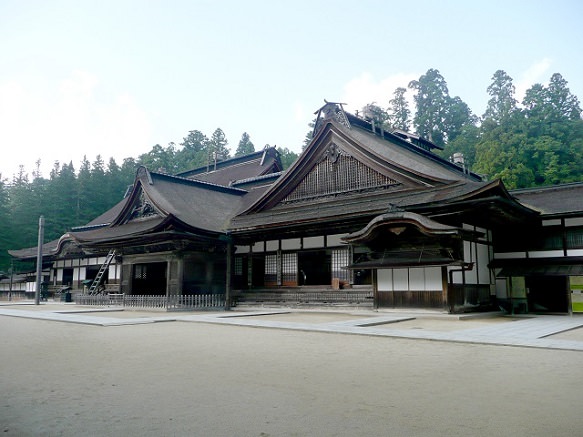-
- USA/Canada 1-800-285-2726
- Australia (02) 8006 4411


Mt. Koya-san is located in the northeastern part of Wakayama and is in Koya-Ryujin Quasi-National Park. On the peak of Mt. Koya-san surrounded by mountains is Kongobu-ji Temple, founded by Kobo Taishi, the Head Temple of Esoteric Buddhism, which has a 1200-year-long history. More than 120 temples are scattered throughout the area, thus forming a great religious city. Thus a small, secluded temple town has developed around the sect's headquarters that Kobo Daishi built on Koyasan's wooded mountaintop. It is also the site of Kobo Daishi's mausoleum and the start and end point of the Shikoku 88 Temple Pilgrimage.
A number of structures exist in the mountain. For instance, the 25-meter-high Dai-mon Gate, Important Cultural Property, that has served as the main entrance to the temple ever since its founding day, or the temple structure complex, National Treasure, and the Danjo-garan complex. Koyazan-Reiho-kan Treasure House exhibits the tremendous cultural properties of Mt. Koya-san.
Lodging facilities are provided by the temple for its followers, available also for visitors. The meal served is Shojin-ryori, special vegetarian food using only vegetables, cereals and seaweed, avoiding meat and fish. Some of the temples offer chances to experience zazen, a kind of Zen Buddhist training. Zazen is a form of mental or spiritual training to focus on eliminating unnecessary thoughts to peace the soul.
If you want to add a stay in a Japanese temple to your vacation, Japan Deluxe Tours can help arrange a stay with our pre or post stay options before or after your Japan tour between Tokyo & Kyoto. You can also choose a tailor-made custom tour package to create the perfect itinerary during your Japan vacation
Created by Toyotomi Hideyoshi to commemorate the death of his mother
Temple surrounded with Tranquility; Mausoleum of Kobodaishi
A traditional vegetarian, gourmet food is called shojin-ryori in Japanese.
Group of pilgrimage routes that lead to the sacred Kumano Sanzan
Fire burning ritual to achieve peace
Meditation practiced in Shingon Buddhism
Good luck charms meant to ward off bad spirits
Japan's oldest temple; first temple built by the state